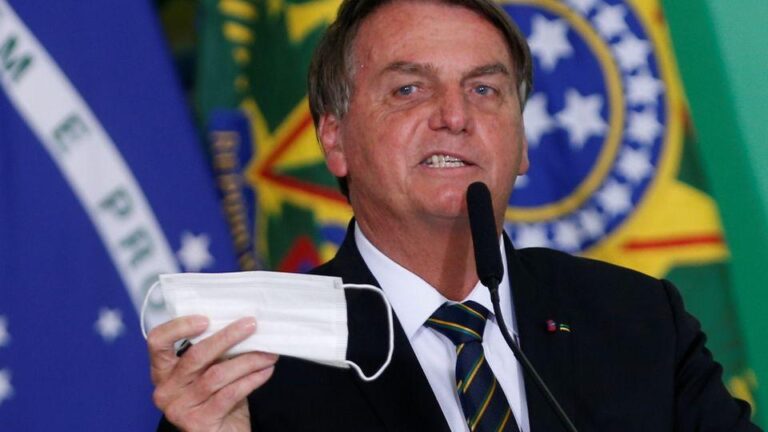Brazilian authorities have revealed that former President Jair Bolsonaro reportedly planned to flee to Argentina in an attempt to seek asylum, according to statements obtained by AP News. The disclosure comes amid ongoing investigations into Bolsonaro’s actions following his tenure, highlighting heightened tensions surrounding the former leader’s legal and political standing. Details of the alleged escape plan have raised questions about Bolsonaro’s next steps and the broader implications for regional politics.
Brazilian Authorities Reveal Bolsonaro’s Alleged Escape Plan to Argentina
Brazilian law enforcement agencies have disclosed troubling details regarding a covert plan allegedly devised by former President Jair Bolsonaro. According to investigative reports, Bolsonaro intended to leave Brazil and seek asylum in Argentina amid mounting political pressure and possible legal repercussions. The plan reportedly involved discreet coordination with sympathetic contacts across the border to facilitate his escape without detection.
Authorities revealed that the ex-president’s escape blueprint included:
- Utilizing private transportation to avoid official checkpoints
- Securing safe houses in Argentine border towns
- Gathering financial resources covertly transferred through trusted intermediaries
| Component | Details |
|---|---|
| Escape Route | Remote border crossings near Misiones Province |
| Transport | Unmarked vehicles and private jets |
| Support Network | Local allies and family confidants |
Implications of Bolsonaro’s Asylum Attempt on Regional Politics and Security
The recent revelation that former Brazilian President Jair Bolsonaro attempted to seek asylum in Argentina has sent ripples through Latin American political circles, highlighting fragilities within regional alliances. Argentina, traditionally seen as a diplomatic hub in Southern Cone politics, now faces increased scrutiny as governments reassess their stances on political exile and cross-border asylum requests amid rising tensions. Bolsonaro’s attempt underscores the potential for political figures to leverage asylum as a tool for evasion during crises, challenging existing frameworks of cooperation and diplomatic protocols.
Key potential regional impacts include:
- Strained diplomatic relations between Brazil and neighboring countries, especially if asylum is granted or politically debated.
- Increased pressure on border security measures to prevent unauthorized crossings during political turmoil.
- New precedents for handling politically charged asylum cases, influencing migration policies across South America.
- Amplification of nationalist and populist rhetoric within the region, as leaders react to perceived interference.
| Country | Asylum Policy Impact | Security Concerns | |||||||||||||||||||||||
|---|---|---|---|---|---|---|---|---|---|---|---|---|---|---|---|---|---|---|---|---|---|---|---|---|---|
| Argentina | Facing diplomatic challenges balancing asylum requests with regional diplomacy | Heightened border vigilance expected | |||||||||||||||||||||||
| Brazil | Enforcement of legal consequences for fleeing former leaders | Increased internal security to deter chaos amid political instability | |||||||||||||||||||||||
| Neighboring States | Reviewing asylum protocols for politically sensitive cases | Coordinating cross-border intelligence sharing |
| Country | Asylum Policy Impact | Security Concerns | |||||||||||
|---|---|---|---|---|---|---|---|---|---|---|---|---|---|
| Argentina | Facing diplomatic challenges balancing asylum requests with regional diplomacy | Heightened border vigilance expected | |||||||||||
| Brazil | Enforcement of legal consequences for fleeing former leaders | Increased internal security to deter chaos amid political instability | |||||||||||
| Neighboring States | Recommendations for Strengthening Border Controls Amid Political Turmoil
In light of recent developments involving high-profile political figures attempting to cross international borders under clandestine conditions, it is imperative to implement robust verification protocols at all checkpoints. Enhanced biometric screening, coupled with real-time data sharing between neighboring countries, can significantly reduce unauthorized crossings. The establishment of dedicated task forces trained to recognize politically sensitive cases is equally vital to ensure swift, secure, and lawful border management. Moreover, cooperation with international agencies must be prioritized to thwart the misuse of asylum systems. The following tactical measures are recommended to strengthen controls and maintain order:
Insights and ConclusionsAs the investigation into former President Jair Bolsonaro’s alleged plans to flee to Argentina unfolds, Brazilian authorities continue to scrutinize the circumstances surrounding the case. The developments add a new chapter to the political turmoil facing Brazil, highlighting ongoing tensions and legal challenges for the ex-leader. Further details are expected as law enforcement and judicial processes advance. |




